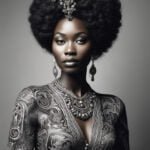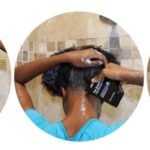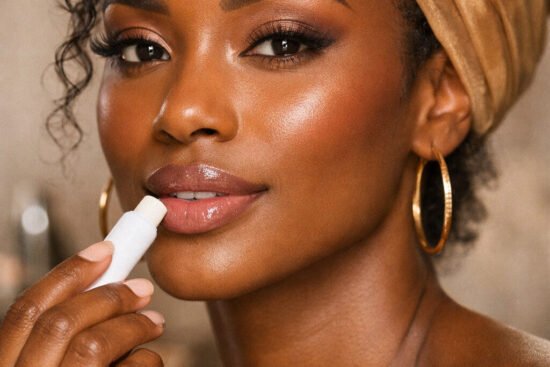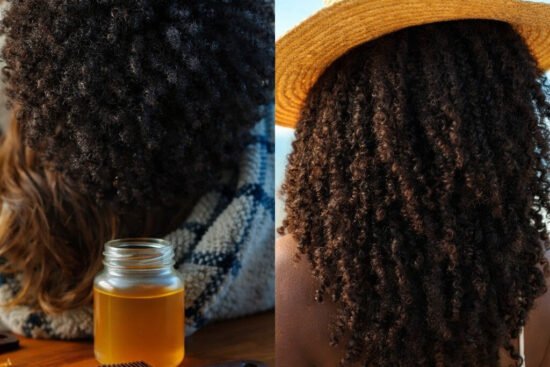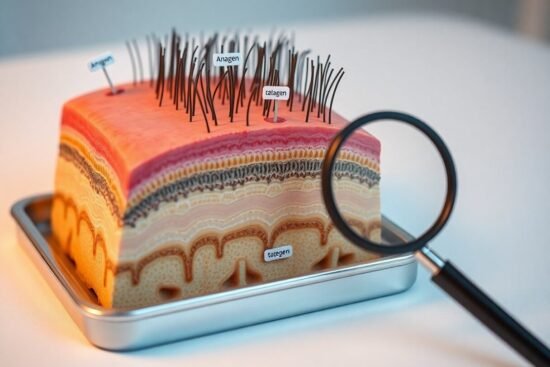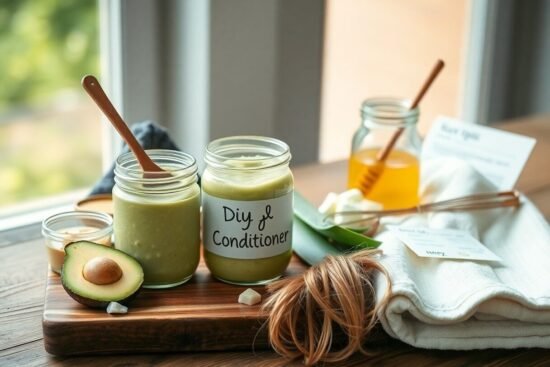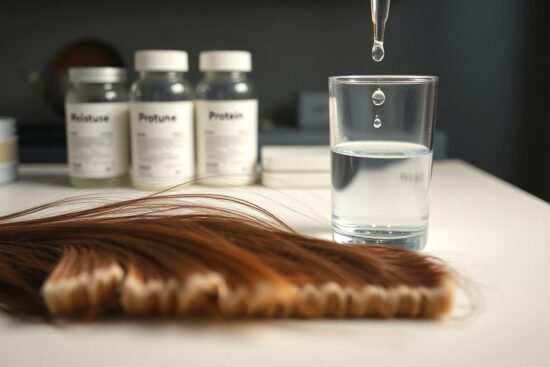
Have you ever wondered why African American hair tends to become so dry? Understanding the unique characteristics of African American hair can help us unravel this mystery. In this article, we will explore the reasons behind the dryness of African American hair and reveal tips and tricks that can be incorporated into a personalized hair care routine for black males. By the end, you will gain valuable insights to nourish and moisturize your hair effectively. So, let’s dive into the world of African American hair and discover the secrets to maintaining strong and hydrated locks!
Understanding the anatomy of African American hair
The unique structure of African American hair
African American hair is distinct from other hair types due to its unique structure. The strands of African American hair are generally more tightly coiled and have a flatter shape compared to other hair types. This structure makes African American hair prone to dryness, as the natural oils produced by the scalp find it difficult to travel down the hair shaft. Understanding the structure of African American hair is essential in order to effectively care for and moisturize it.
The role of natural oils and moisture
The natural oils produced by the scalp play a crucial role in moisturizing the hair. These oils, known as sebum, help to nourish and protect the hair follicles, keeping the strands supple and moisturized. However, due to the unique structure of African American hair, the natural oils struggle to travel down the hair shaft. This can result in dryness, breakage, and a lack of moisture in the hair.
The barriers to moisture retention in African American hair
African American hair faces several barriers when it comes to retaining moisture. The tightly coiled structure of the hair makes it more difficult for moisture to penetrate the strands. Additionally, the cuticles, which are the outer layer of the hair shaft, are more raised and prone to damage in African American hair. This can lead to moisture escaping from the hair, resulting in dryness and brittleness. Understanding these barriers to moisture retention is essential in developing a hair care routine that effectively addresses the specific needs of African American hair.
Impact of Environmental Factors on African American Hair
Effect of humid or dry climates
The environment in which we live plays a significant role in the health and moisture levels of African American hair. In humid climates, the excess moisture in the air can cause the hair to become frizzy and prone to breakage. On the other hand, dry climates can strip the hair of its natural moisture, leaving it dry and brittle. It is important to consider the climate you live in and adjust your hair care routine accordingly to protect your hair from these environmental factors.
The significant role of water quality
The quality of the water you use to wash your hair can have a major impact on the moisture levels of African American hair. Hard water, which contains high levels of minerals such as calcium and magnesium, can leave a residue on the hair and scalp, making it difficult for moisture to penetrate the strands. On the other hand, soft water, which has a lower mineral content, can help to maintain moisture in the hair. Considering the water quality in your area and using products specifically designed for hard water can help to prevent dryness and maintain the health of your hair.
The influence of seasonal changes
Seasonal changes can also have an effect on the moisture levels of African American hair. In colder months, the dry air can cause the hair to become dry and brittle. On the other hand, in hotter months, excessive exposure to the sun’s rays can lead to moisture loss and damage to the hair. It is important to adjust your hair care routine according to the seasons, incorporating protective styles and using products that provide hydration and protection against the elements.
The role of diet and hydration in hair moisture
How diet affects hair health
The saying “you are what you eat” holds true when it comes to the health and moisture of African American hair. A well-balanced diet that includes ample nutrients and vitamins promotes hair health, including moisture retention. Foods rich in vitamins A, C, and E, as well as omega-3 fatty acids, contribute to the strength and moisture of the hair. Incorporating foods such as salmon, leafy greens, avocados, and nuts into your diet can help improve the overall health and moisture levels of your hair.
The importance of hydration for maintaining hair moisture
Drinking an adequate amount of water is essential for maintaining the moisture levels of African American hair. When the body is dehydrated, it prioritizes essential bodily functions over the health of the hair. This can result in dryness and brittleness. Ensuring that you drink enough water throughout the day helps to keep both your body and your hair hydrated. It is recommended to drink at least 8 cups of water per day to maintain optimal hair moisture.
Recommended dietary changes for healthier hair
To improve the moisture levels of African American hair, it is important to make certain dietary changes. Incorporating more fruits and vegetables into your meals can provide your hair with essential vitamins and antioxidants. Fish, such as salmon, is rich in omega-3 fatty acids, which promote hair health. Including more nuts and seeds in your diet provides your hair with necessary proteins and minerals. Making these dietary changes can significantly contribute to maintaining the moisture and health of African American hair.
Mechanical Damage as a cause of dryness
Common styling habits that lead to hair damage
Certain styling habits can have a detrimental effect on the moisture levels of African American hair, leading to dryness and breakage. Tight hairstyles, such as ponytails or braids, that pull on the hair can cause tension and damage the strands. Using harsh brushes or combs, particularly when the hair is dry, can lead to breakage and dryness. It is important to be gentle when handling African American hair and to avoid hairstyles that put excessive stress on the strands.
Effects of heat styling
Heat styling tools, such as flat irons and curling irons, can also contribute to the dryness of African American hair. The high temperatures from these tools can strip the hair of its natural moisture, leaving it dry and brittle. It is essential to use heat protectant products before applying heat to the hair and to limit the use of heat styling tools to prevent unnecessary damage and dryness.
The impact of improper detangling
Improper detangling techniques can cause mechanical damage to African American hair, resulting in dryness and breakage. Using small-toothed combs or brushes on tangled hair can cause the strands to snap and become dry. Instead, it is recommended to use wide-toothed combs or detangling brushes to gently remove knots and tangles. Starting at the ends of the hair and working your way up can help to prevent breakage and dryness.
Chemical Damage and its effects on African American Hair
Effects of hair relaxing and perm treatments
Chemical treatments, such as hair relaxing or perming, can have a significant impact on the moisture levels of African American hair. These treatments can alter the natural structure of the hair, making it more susceptible to dryness and damage. The chemicals used in these processes can be harsh and strip the hair of its natural oils, leading to dryness and breakage. It is important to carefully consider the potential effects of chemical treatments and to ensure that your hair care routine includes ample hydration and moisture to counteract any damage caused.
How dyeing and coloring contributes to hair dryness
Dyeing and coloring the hair can also contribute to dryness in African American hair. The chemicals in hair dyes and colorants can strip the hair of its natural moisture, leaving it dry and brittle. It is important to use hair dyes and colorants specifically formulated for African American hair and to follow the instructions carefully. Additionally, incorporating deep conditioning treatments and moisturizing products into your hair care routine can help to restore and maintain moisture levels after dyeing or coloring.
The role of harsh hair products in drying hair
Certain hair products, such as shampoos, conditioners, and styling products, can contain harsh ingredients that can dry out African American hair. Ingredients such as sulfates and alcohols can strip the hair of its natural oils, leading to dryness and breakage. It is important to choose hair products that are specifically formulated for African American hair and that prioritize moisture and hydration. Look for products that are sulfate-free and alcohol-free, and contain natural ingredients that nourish and moisturize the hair.
African American males and specific hair care challenges
Common hair care misconceptions for black males
There are several hair care misconceptions that specifically affect black males. One common misconception is that black males do not need to moisturize their hair due to its naturally oily texture. However, the unique structure of African American hair still requires moisture and hydration to prevent dryness and keep it healthy. Another misconception is that short hair requires less maintenance than longer hair. While the styling may be simpler, short hair still requires proper care and attention to maintain moisture and prevent dryness.
Unique challenges to caring for black male hair
Black male hair has its own set of challenges when it comes to hair care. The coiled and tightly curled nature of the hair can make it prone to dryness and breakage. Additionally, many black males choose to have short hairstyles, which can make it more challenging to incorporate protective styles or certain hair care practices. Understanding the unique challenges that black male hair faces is crucial in developing an effective hair care routine that promotes moisture retention and overall hair health.
Hair care routine recommendations for black males
Developing a hair care routine specifically tailored to black male hair can help maintain moisture levels and promote healthy hair. It is recommended to wash the hair regularly using a moisturizing shampoo and conditioner designed for African American hair. Deep conditioning treatments should be incorporated into the routine to provide additional hydration and nourishment. Regular trims are important to prevent split ends and dryness. Finally, incorporating protective styles, such as braids or twists, can help to retain moisture and minimize manipulation of the hair.
Incorporating protective hairstyles for moisture retention
Understanding protective hairstyles
Protective hairstyles are hairstyles that minimize the manipulation and stress placed on the hair, allowing it to retain moisture and promote growth. These hairstyles typically involve braiding, twisting, or tucking the hair away, protecting it from damage caused by environmental factors, styling tools, and everyday wear and tear. Protective hairstyles are especially beneficial for African American hair, which is prone to dryness and breakage.
The benefits of using protective styles
Using protective styles can help African American hair retain moisture and minimize damage. By keeping the hair tucked away and protected, these styles prevent excessive exposure to the elements, such as sun, wind, and humidity. This reduces the risk of dryness and breakage, allowing the hair to grow and remain healthy. Protective styles also require less daily manipulation, reducing the risk of mechanical damage from styling tools and harsh brushing.
Popular protective styles for moisture retention
There are various protective styles that are popular for moisture retention in African American hair. Box braids, which involve braiding individual strands of hair, are a common choice as they provide excellent protection and versatility. Twists, both two-strand and three-strand, are another popular option. These styles keep the hair tightly secured and protected. Additionally, buns, cornrows, and weaves are all effective protective styles that help to retain moisture and promote hair health.
Importance of using the right hair products for African American Hair
Choosing shampoos and conditioners for African American hair
When it comes to African American hair, choosing the right shampoos and conditioners is essential for maintaining moisture levels and overall hair health. Look for shampoos that are sulfate-free, as sulfates can strip the hair of its natural oils. Moisturizing shampoos designed for African American hair often contain nourishing ingredients, such as shea butter and argan oil, which help to hydrate and soften the hair. Similarly, using a conditioner specifically formulated for African American hair will provide the necessary moisture and hydration to keep the hair healthy and moisturized.
The critical role of leave-in conditioners and oils
Leave-in conditioners and oils are a crucial part of a hair care routine for African American hair. After washing and conditioning, applying a leave-in conditioner helps to lock in moisture and provide additional hydration throughout the day. Look for leave-in conditioners that contain moisturizing ingredients, such as aloe vera or glycerin. Oils, such as coconut oil or jojoba oil, can also be applied to the hair to seal in moisture and provide added nourishment. These products are especially beneficial for African American hair, which requires extra moisture to combat dryness and promote hair health.
Avoiding harmful ingredients in hair products
When selecting hair products for African American hair, it is important to avoid harmful ingredients that can contribute to dryness and damage. Common harmful ingredients to look out for include sulfates, alcohols, and silicones. Sulfates can strip the hair of its natural oils, leading to dryness and breakage. Alcohols can be drying to the hair, while silicones can cause product buildup and prevent moisture from penetrating the hair shaft. Opt for products that are free from these harmful ingredients and instead contain natural and moisturizing ingredients to nourish and hydrate the hair.
The significance of regular trims to avoid dryness
How regular trims help maintain hair health
Regular trims are essential for maintaining the health and moisture of African American hair. Trimming the hair removes any split ends or dryness, preventing further damage and breakage. Split ends can travel up the hair shaft and cause dryness and brittleness, so regular trims help to keep the hair healthy and retain moisture. Additionally, trimming the hair helps to promote even growth and prevents the hair from appearing dull or lifeless.
Connecting trims with reduced breakage and dryness
Regular trims play a significant role in reducing breakage and dryness in African American hair. By removing split ends and damaged sections of the hair, trims prevent further breakage from occurring. Split ends can spread up the hair shaft, causing dryness and breakage throughout the hair. Trimming the hair regularly helps to maintain its overall health and moisture, allowing it to grow and remain strong.
Professional tips for trimming African American hair
When it comes to trimming African American hair, it is recommended to seek the assistance of a professional stylist who is experienced in working with this hair type. Trimming African American hair requires a specific technique to ensure that the hair is not cut too short or unevenly. Regular trims every 6 to 8 weeks are generally recommended to maintain the health and moisture of the hair. Consulting with a stylist and discussing your hair goals can help to create a customized trimming plan that suits your specific needs.
Effect of stress and lack of sleep on African American hair health
Understanding the relationship between stress, sleep, and hair health
Stress and lack of sleep can significantly impact the health and moisture levels of African American hair. When the body is stressed, it releases hormones that can disrupt the normal hair growth cycle, leading to dryness and hair loss. Similarly, a lack of sleep can affect the body’s ability to repair and regenerate, including the cells responsible for hair growth and moisture retention. Understanding the relationship between stress, sleep, and hair health is crucial for maintaining optimal moisture levels in African American hair.
Ways to manage stress for better hair health
Managing stress effectively is essential for maintaining the moisture and overall health of African American hair. Engaging in stress-relieving activities, such as yoga, meditation, or hobbies, can help to reduce stress levels and promote relaxation. It is also important to prioritize self-care and take time for yourself to unwind and recharge. Additionally, seeking support from friends, family, or professionals can provide valuable resources and strategies for managing stress effectively.
The role of adequate sleep in promoting healthy hair
Getting enough sleep is vital for promoting healthy hair, including moisture retention in African American hair. During sleep, the body repairs and regenerates, including the cells responsible for hair growth and moisture retention. Lack of sleep can disrupt this process and lead to dryness and brittleness in the hair. Aim for 7 to 9 hours of quality sleep per night to ensure that your body and hair have the opportunity to rest and rejuvenate.
In conclusion, understanding the unique structure of African American hair is the first step in developing an effective hair care routine that promotes moisture retention. Environmental factors, such as climate and water quality, can impact the moisture levels of African American hair, highlighting the need for adaptability in your routine. Diet and hydration play a crucial role in maintaining hair moisture, as does avoiding mechanical and chemical damage. Black males face their own specific hair care challenges, requiring tailored routines and protective hairstyles. Choosing the right hair products, incorporating regular trims, and managing stress and sleep are also essential in maintaining the moisture and health of African American hair. By incorporating these strategies, you can ensure that your hair remains hydrated, healthy, and beautiful.
